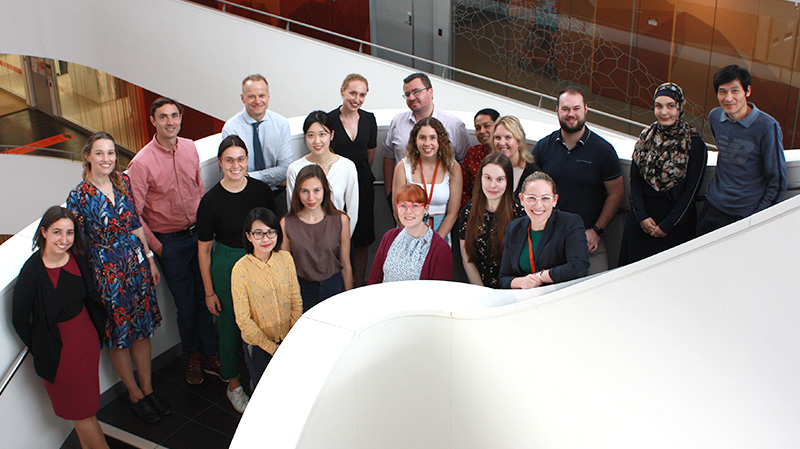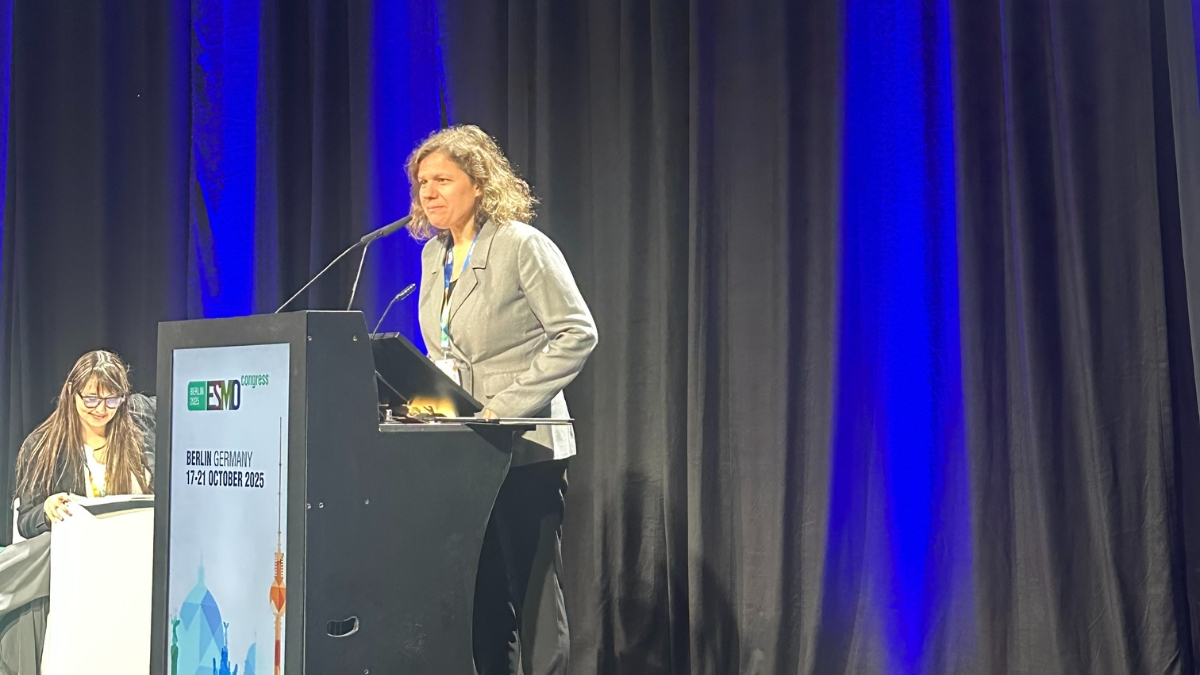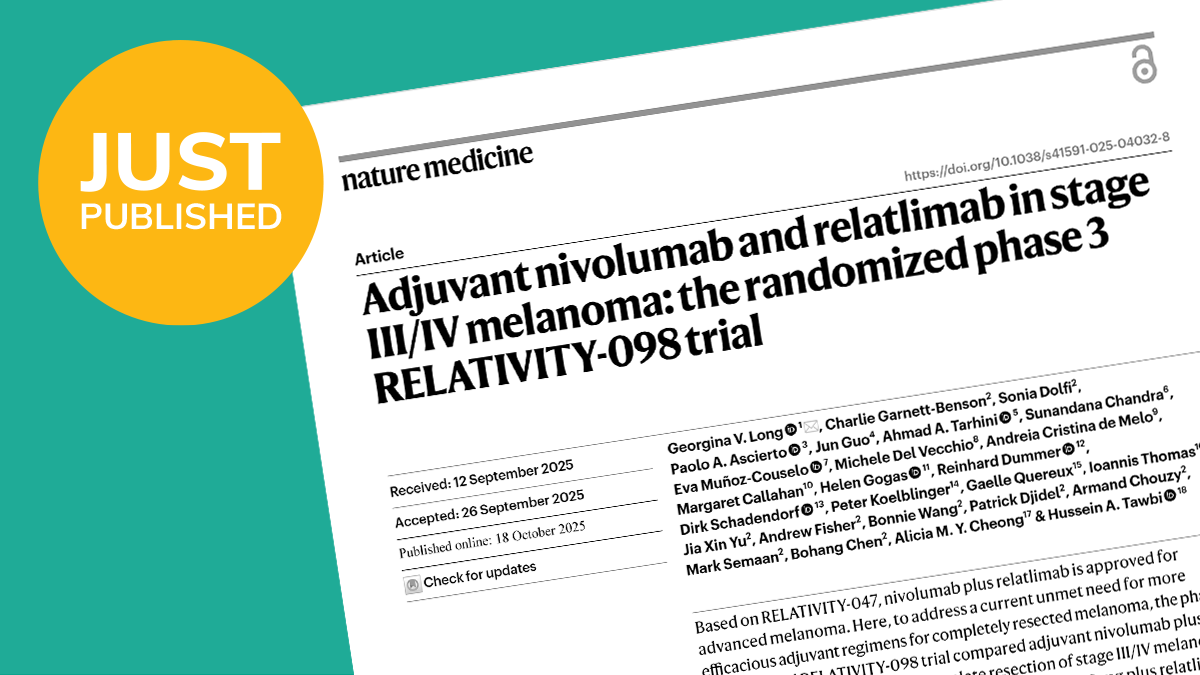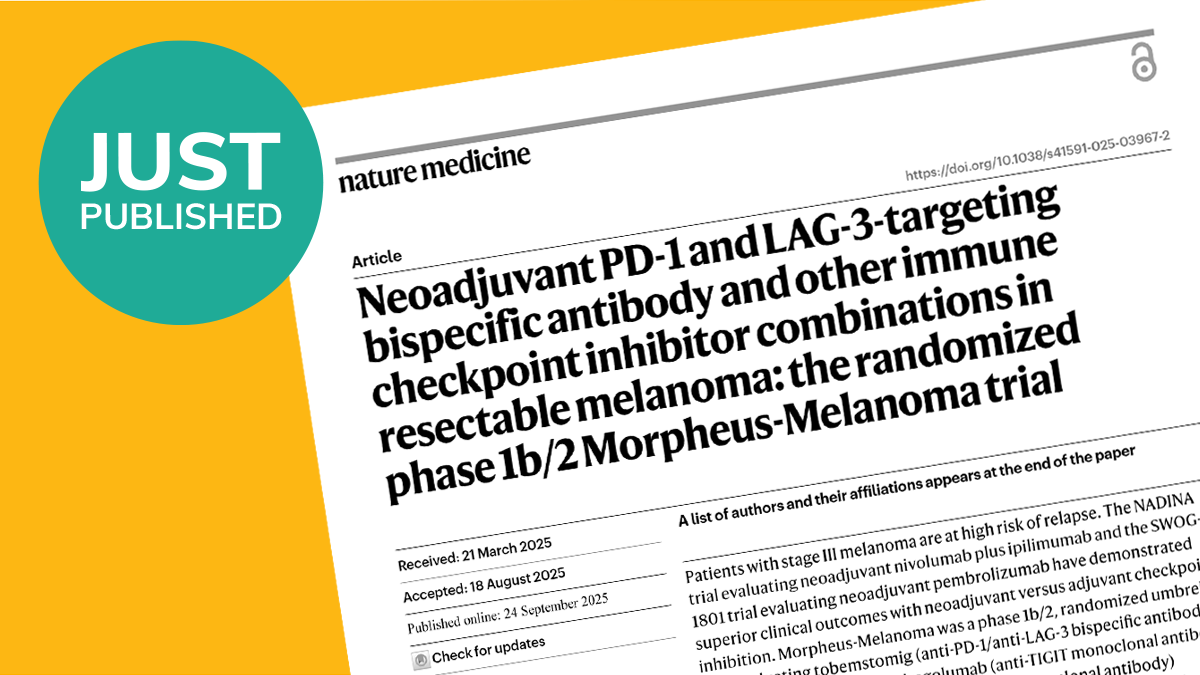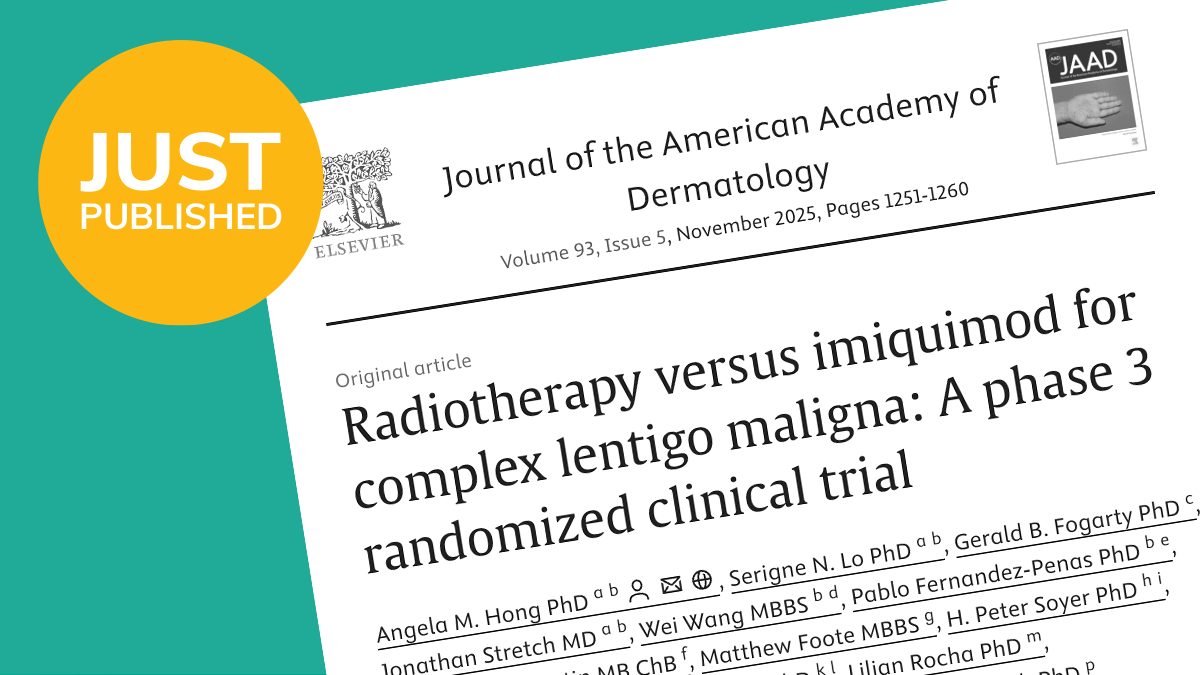More than 2,000 clinicians and researchers from across the globe united online for the virtual 10th World Congress of Melanoma in conjunction with the 17th EADO Congress.
As leaders in the field of melanoma, many clinicians and researchers from Melanoma Institute Australia (MIA) shared their knowledge. This congress provides an opportunity to educate clinicians on the latest developments in our understanding and treatment of skin cancer.
Here are just a handful of the areas of melanoma research that we presented on:
• Renowned pathologist and MIA’s Co-Medical Director, Prof Richard Scolyer, discussed how we can predict the likelihood that a patient’s disease will return by examining the molecular profile of their melanoma.
• Medical Oncologist and MIA’s Co-Medical Director Prof Georgina Long AO delivered a keynote address discussing if a cure for advanced melanoma is on the horizon. She reviewed the recent advancements in drug development to treat advanced melanoma, as well as outlining the challenges we still face to overcome drug resistance. Prof Long also highlighted the importance of getting our prevention messaging across if we truly want to reach our goal of zero deaths from melanoma.
• Translational researcher Prof Helen Rizos will reviewed how circulating DNA in the bloodstream can be used as a marker to monitor disease and treatment response in patients with advanced melanoma. This minimally invasive technique can help monitor patients in real-time and is proving to be a valuable new tool to support the clinical care of patients with melanoma.
• Dermatologist Prof Diona Damian presented an overview of nicotinamide (vitamin B3) as a preventative measure to reduce the incidence of non-melanoma skin cancers in high-risk patients.
• Using clinical data alone can help predict which patients will respond well to treatment with immunotherapy. However, when Dr James Wilmott and our team of lab researchers examined biopsies taken from patients before immunotherapy, they found that biopsies showing higher numbers of immune cells touching the melanoma were associated with response and tumour shrinkage. Dr Wilmott shared these findings which will ultimately help select the ideal therapies for patients and will be incorporated into our Personalised Immunotherapy Platform.
Through the combined sharing of knowledge, it is inspiring to see the global commitment to enhancing our understanding of melanoma that will ultimately improve the care of melanoma patients.
#10thWCM
